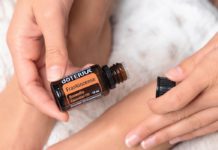The Nitty-gritty
Acne is triggered by clogged pores and bacteria, and it’s often difficult to manage. Prescription and over-the-counter treatments may help, although some can also cause serious side effects. Nonetheless, if traditional treatments become a failure, or if you would rather prefer to try something more natural, you are free to decide to move your attention to herbal remedies.
Herbal remedies were most of the time used to clear up acne and other skin conditions. This was well before modern treatments came into existence. Despite the poor research on many herbal solutions, anecdotal evidence is bountiful.
Funny enough, herbal remedies have a habit of having lesser side effects than modern treatments. Some herbs have been found rich in anti-inflammatory, antibacterial, and antiseptic properties. These properties can possibly help in the reduction of acne-causing bacteria and inflammation and also heal blemishes.
What Some Studies say
Neem
Neem (Azadirachta indica) is just another popular Ayurvedic herb. According to a 2010 study, neem oil has compounds that are:
- Antifungal
- Antibacterial
- anti-inflammatory
- antiseptic
- antioxidant
Traditional healing uses of neem include treating skin conditions such as eczema, acne, and psoriasis. According to 2001 research, neem has a rich antibacterial activity that fights against several micro-organisms. This comprises Staphylococcus, a bacterium that’s connected to acne.
Manjistha
Manjistha (Rubia cordifolia) is a perennial herb widely known in Ayurvedic medicine. It is believed to support your lymphatic system, which is very dangerous to healthy skin. Studies reveal that manjistha has not only an anti-inflammatory property but also antibacterial and antiandrogenic abilities that can actively help in the prevention and treatment of acne.
Tea Tree
Tea tree (melaleuca alternifolia) is also an herb used most of the time in treating wounds and skin problems. It has anti-inflammatory and antiseptic abilities that can comfortably reduce the number of acne lesions. In a study carried out back in 1990, a topical gel having about 5 percent tea tree oil was then compared to a topical cream with 5 percent benzoyl peroxide. The result revealed that both preparations lowered the number of inflamed and non-inflamed acne lesions. Although the tea tree oil took a longer time to work, it nonetheless resulted in lesser side effects. Some of these side effects included irritation, dryness, redness, and itching.
Witch Hazel and Other Herbs
Witch hazel encompasses astringent tannins, which may treat acne by taking out excess skin oil. It also has anti-inflammatory effects and is believed to successfully reduce bruising and redness. Witch hazel is most times used alone or as a foundation for homemade acne remedies.
If you seek other antiseptics for the treatment of acne, then consider antiseptic, anti-inflammatory herbs that may help heal acne. They are:
- calendula
- chamomile
- lavender
- rosemary
How Do You Apply Herbs for Acne?
 Sometimes, it really confusing when it comes to how to use herbs for different health problems. This is as a result of the fact that most of these herbs come in their raw form, and there may not be organizations set up to look into the recommended dosage for each plant.
Sometimes, it really confusing when it comes to how to use herbs for different health problems. This is as a result of the fact that most of these herbs come in their raw form, and there may not be organizations set up to look into the recommended dosage for each plant.
Witch hazel may be smeared directly to your skin using a cotton ball or cotton swab. You can also try combining it with a carrier oil and other acne herbal remedies. Do not forget that these herbs may be poisonous to your body system, so you should not inject or drink witch hazel.
Nonetheless, you are free to use witch hazel as part of your skincare regimen to clean and freshen your skin and also to remove makeup. For your best skin results, the Farmer’s Almanac suggests these steps to generate your very own witch hazel decoction:
- Go on and add witch hazel bark and twigs to a huge stainless steel pot.
- Cover your herb with distilled water.
- Go ahead to boil and simmer your mixture for at least 30 minutes.
- Allow it to cool overnight.
- Drain your decoction and pour into a glass container.
- Store in the refrigerator.
Neem oil should also be diluted with a carrier oil or water, such as olive oil or coconut oil, before application. Neem oil soap is, no doubt, another great way to try the herb. Search for it at your local natural health store. Be prepared for what is to come afterward since neem oil has a strong odor that many people find very nasty.
Manjistha is frequently used in powder form and also combined with other herbs such as neem. It is also found in soaps and capsules.
Dangers of Acne Treatment
Some acne treatments can, in almost rare instances, cause serious allergic reactions that are possibly life-threatening.
The Food and Drug Administration (FDA) therefore warns that the use of some acne products that have the active ingredients salicylic acid or benzoyl peroxide can cause rare but severe and possibly life-threatening allergic reactions or deadly irritation. An active ingredient is a mixture that makes the medicine very effective against the condition or illness it is treating.
Types of Reactions
Surprisingly, about forty percent of these reports labeled serious allergy signs such as shortness of breath, throat tightness, low blood pressure, wheezing, fainting, or collapse. There are also isolated instances of itching of the body or face (even on some parts of your body where you may not have smeared the medication), hives, and swelling of the face, eyes, and lips.
Warnings and Risks
Likely side effects related to most herbal remedies for acne include skin irritation and allergic reaction. Now, if you are familiar with inflammation, itching, or burning while using this herb, discontinue use and check with your healthcare provider.
Tea tree oil has been known to bring out blistering rashes on your face during use. You should not use it if your skin is very sensitive or you are allergic to plants from the myrtle family. These plants include eucalyptus, allspice, and clove.
Pregnant women, breastfeeding women, and children are advised not to use herbs to treat acne except under the supervision of a greatly trained practitioner.
Some people prefer taking herb drinks instead of smearing it to the skin in an effort to treat acne systemically. Now, do not go ahead to assume that this is alright, or it is the best way to treat acne. In fact, you should not attempt doing this unless you are under the supervision of a trained physician. Don’t get it wrong; a lot of herbs are fine to use on the skin, but you should also note that some of these herbs are toxic when consumed, particularly in large amounts.
Tea tree oil is simply poisonous when taken into one’s system. You should not use it on the skin around your mouth where it may be ingested by mistake.
Other Treatments for Acne You Need to Know
 Acne treatments depend on strictness. According to a report by the American Academy of Dermatology (AAD), there are about four grades of acne. Grade 1 is mild, while grade 4 is serious. In the case of mild acne, products containing benzoyl peroxide or salicylic acid are believed to help clear the skin of acne.
Acne treatments depend on strictness. According to a report by the American Academy of Dermatology (AAD), there are about four grades of acne. Grade 1 is mild, while grade 4 is serious. In the case of mild acne, products containing benzoyl peroxide or salicylic acid are believed to help clear the skin of acne.
However, more serious acne cases may need:
- a prescription-strength topical cream containing benzoyl peroxide, retinoids, salicylic acid, or antibiotics
- oral antibiotics
- birth control pills
The most severe cases of acne may also be treated with:
- laser therapy
- isotretinoin
- drainage and extraction procedure
chemical peels
What You Need to Do Right Away
If your mother has at one point warned you that eating junk food causes acne, she knew absolutely what she was talking about. Now, according to the academy, eating a low-glycemic diet poses a high chance for a reduction in your acne risk. It is also believed that high-glycemic foods, such as sodas and highly processed carbs, have the ability to enhance hormone and insulin levels. When insulin and hormone levels in the body increases, this can cause acne. Dairy has also been reported to be a culprit.
Although more studies are needed, it certainly will not hurt to try a low-glycemic diet rich in fresh vegetables and fruits. No doubt, your skin may look better, and you may even become healthier overall. You should also consider keeping a food diary to take note of the foods that trigger your acne breakouts.
Try to keep your skin as unspoiled as possible. Wash it with a nonabrasive, alcohol-free cleanser after you are done sweating. Try as much as you can not to touch your face throughout the day, and, no matter how much you may want to touch it, squash that urge!
If your acne doesn’t respond to over-the-counter treatments or herbal remedies, do not hesitate to see a dermatologist.




